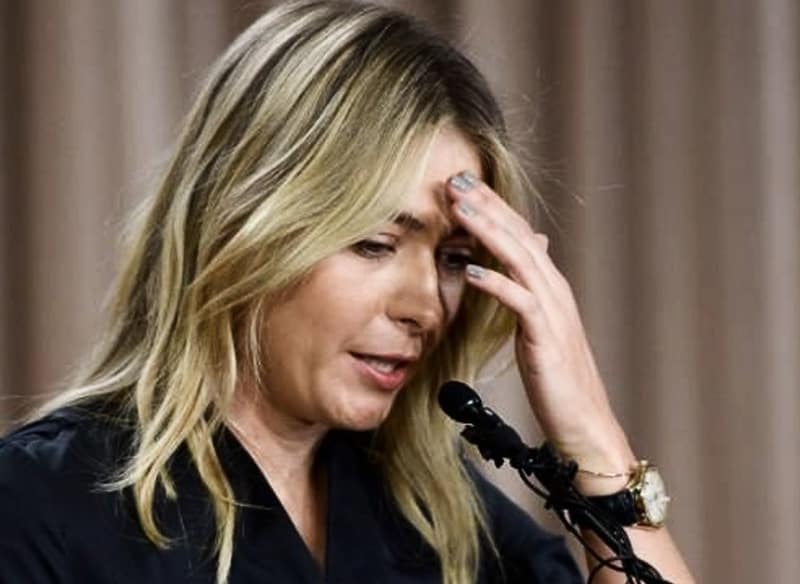By Vaibhav Arakala
Tennis star pays price for failing dope test, vows to appeal suspension.
Maria Sharapova was on Wednesday banned for two years after failing a drug test but insisted she will appeal a decision which could effectively end her career.
Russian star Sharapova provided a urine sample in January, after her quarterfinal match at the 2016 Australian Open in Melbourne, Australia. That sample was sent to the WADA-accredited laboratory in Montreal, Canada for analysis and was found to contain meldonium, which is a metabolic modulator that is included under section S4 (Hormone and Metabolic Modulators) of the 2016 WADA Prohibited List, and therefore is also prohibited under the Programme.
On March 2, Sharapova was charged with an anti-doping Rule violation under Article 2.1 of the programme (presence of a prohibited substance in a player’s sample).
She promptly admitted that she had committed the anti-doping rule violation charged, and asked for a hearing before an independent tribunal in accordance with Article 8 of the programme to determine the consequences to be imposed on her for that violation.
At a two-day hearing on May 18-19, the independent tribunal received evidence and heard legal arguments from both parties, and subsequently issued a reasoned decision on Wednesday, which is available below.
The independent tribunal determined that (1) Sharapova should serve a period of ineligibility of two years; (2) due to her prompt admission of her violation, that period of ineligibility should be back-dated under Article 10.10.3(b) of the programme to commence from January 26 (the date of sample collection) and so should end at midnight on January 25, 2018; and (3) her results at the 2016 Australian Open should be disqualified, with resulting forfeiture of the ranking points and prize money that she won at that event.
The tennis anti-doping programme applies to all players competing at Grand Slam tournaments and events sanctioned by the ITF, ATP, and WTA. Players are tested for substances prohibited by the World Anti-Doping Agency and, upon a finding that an anti-doping rule violation has been committed, sanctions are imposed under the programme in compliance with the requirements of the World Anti-Doping Code.
Sharapova blasted the ban as “unfairly harsh” in a statement on her Facebook fan page.
“While the tribunal concluded correctly that I did not intentionally violate the anti-doping rules, I cannot accept an unfairly harsh two-year suspension. I will immediately appeal to Court of Arbitration for Sport,” fumed Sharapova.
